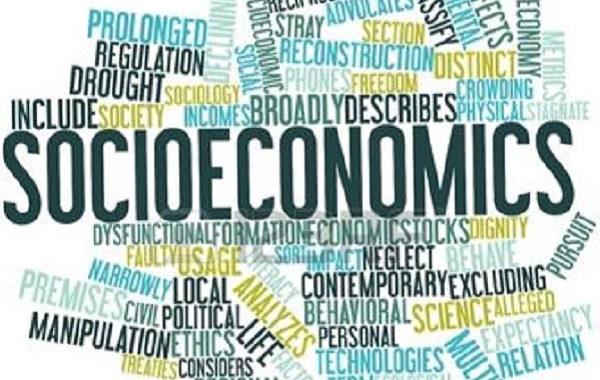
So what is this strange thing called Socio economics and why have we at MFTSE Affairs S.A. decided to promote discussion and debate in the framework of this social science?
In general terms it is the social science that studies how economic activity affects and is shaped by our social processes. It analyses how our different societies progress, stagnate or regress due to the effects of their local, regional or global economy.
Socio economics is sometimes used as an umbrella term but it can have quite different meanings - the term 'social economics' may refer broadly to the "use of economics in the study of society." Basically it considers behavioural interactions of individuals and groups through social capital and social "markets" and the formation of social norms. It also studies the relation of economics to social values.
Some describe social economics as "a discipline studying the reciprocal relationship between economic science on the one hand and social philosophy, ethics, and human dignity on the other" toward social reconstruction and improvement or as also emphasising multidisciplinary methods from such fields as sociology, history, and political science. In criticising mainstream economics for its alleged faulty philosophical ideas (for example the pursuit of self-interest) and neglect of dysfunctional economic relationships, such advocates tend to classify social economics as not in accordance with established or accepted doctrines or opinions, especially in theology, i.e. unorthodox doctrines or opinions.
For example, the Governor of Washington, Paul Doran, once said of the effects of socioeconomics "Socioeconomic impact is widely known through the classification of international trade treaties”.
‘Socioeconomists’ often focus on the social impact of some sort of economic change. Such changes might include a closing factory, market manipulation, the signing of international trade treaties, new natural gas regulation, etc. Such social effects can be wide-ranging in size, anywhere from local effects on a small community to changes to an entire society or groups of societies.
Examples of causes of socioeconomic impacts include new technologies such as cars or mobile phones, changes in laws, changes in the physical environment (such as increasing crowding within cities), and ecological changes (such as prolonged drought or declining fish stocks. These may affect patterns of consumption, the distribution of incomes and wealth, the way in which people behave (both in terms of purchase decisions and the way in which they choose to spend their time), and the overall quality of life.
The goal of socioeconomic study is generally to bring about socioeconomic development, usually by improvements in metrics such as GDP, life expectancy, literacy, levels of employment, etc.
Although they may be harder to measure, changes in less-tangible factors are also considered, such as personal dignity, freedom of association, personal safety and freedom from fear of physical harm, and the extent of participation in civil society.
At MFTSE Affairs we, like most people, feel that, particularly since the 2008 financial crisis, there is an urgent need for change across the globe. We focus on the understanding that socioeconomic study would help us to do something to participate in the creation and consolidation of that change (socioeconomic development).
During this study, indeed, we came across the notion of Social Physics and, in particular, were fascinated by the power within social networking and why this has become so popular. We can always discuss the pros and cons of these social communities, but there can be no doubt about the influence they have on or over governments and leaders. In many ways the politician’s task of reaching out and listening to the people has been facilitated by this digital media phenomenon.
Social Physics shows that much of what we do as humans comes from within us, some believe it comes from our mothers and is later further developed with the help of the father in a family unit. One thing we are often told from a young age is that we should always help one another; that is perhaps the essence of building a society. We believe, however, that this is also born within us and that we all, therefore, have a socioeconomic conscience, a desire to help one and other.
We therefore decided that we would create our own social network focusing on socioeconomic affairs to help us make a real and active impact on the change necessary for a fairer world and a higher quality of life for all. We hope that our new web-platform www.finance-eco-money.org will contribute towards achieving this and look forward to you joining our community to express your opinions, pass on your knowledge and innovations, each of us winning simply by sharing what matters with others. You will also find evolving financial management tools to help with your personal affairs should you be that way inclined though our Worlds of Change, Learning and Action.
Please join (through our short-cut: www.FEM.lu) or follow us here in this opinion column and across other media and groups in the coming months.









